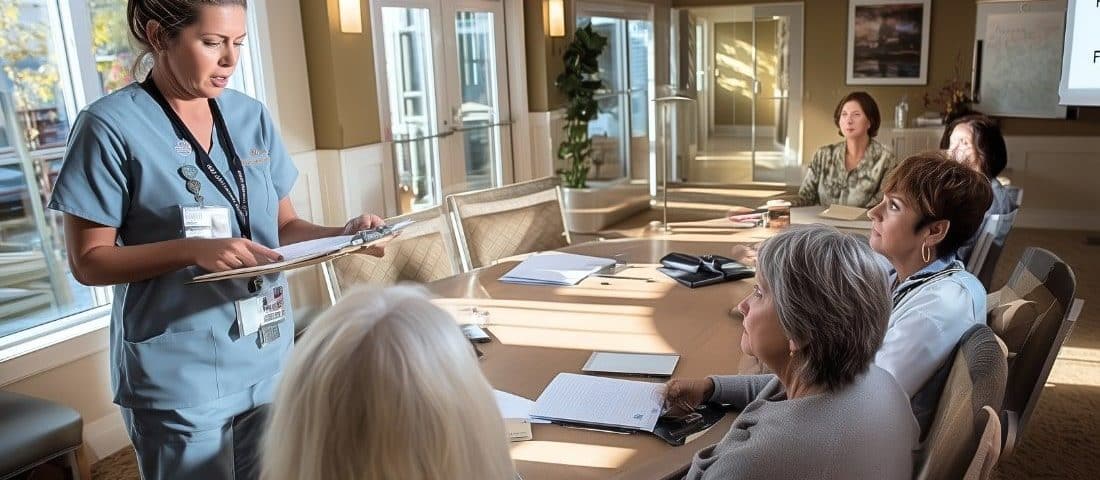Senior living staff often face challenging questions from families. Maybe their loved one is moving to the community, and they want to know more. It could be the family of a long-time resident wanting to learn more about daily life. Whatever the situation, you want staff members to be prepared for these interactions. Answering these questions can impact satisfaction and the family’s impression of the community.
But what can you do to train your team to handle these interactions? This post explores ways to prepare staff for questions from families.
Preparing Senior Living Staff for Questions From Families
Understanding Common Concerns
The first step is to put yourself in the shoes of these families and understand the factors driving their concerns. Most questions come from concerns about a loved one’s well-being, safety, and quality of life. Common topics include the level of care provided, staff qualifications, emergency procedures, finances, and the basics of daily life. By identifying these areas of concern, communities can predict the questions families will ask. That lays the foundation you’ll need to prepare your team.
Standard Answers for Routine Questions
Community staff often face the same questions from different families over time. They relate to everyday concerns like care levels, staffing, quality of life, amenities, etc. These questions often have standard, repeatable answers. To help staff respond confidently, communities should develop clear, standardized answers for common questions. That way, families get accurate and consistent answers. It also makes staff feel more prepared and reduces the chances of miscommunication.
Educate and Empower Staff
Standard answers are helpful, but won’t cover everything. Communities should provide staff with knowledge and a deeper understanding of community operations. Ensure team members are well-versed in policies, procedures, and the scope of services. Cross-training can help staff learn how other departments function, giving them a broader perspective. Clearly define what team members can answer and when to seek a manager, nurse, or specialist. Remind staff that it’s okay to say they are not sure.
Teach Communication Skills
Successful interactions require good communication skills. Management should train staff to give family members their full attention. If possible, they should pause what they are doing, make eye contact, and use open body language. Encourage active listening by teaching staff to acknowledge emotions and paraphrase concerns before responding. Avoid using technical jargon and make answers as clear and concise as possible. Staff should speak calmly and confidently, even when the topic is sensitive. Above all, team members should be honest and never overpromise.
Canopy Senior Living is a leading senior living management and consulting firm. We can help you acquire and train staff to provide excellent care and be competent in family interactions. Reach out now to learn more about our comprehensive management services.

